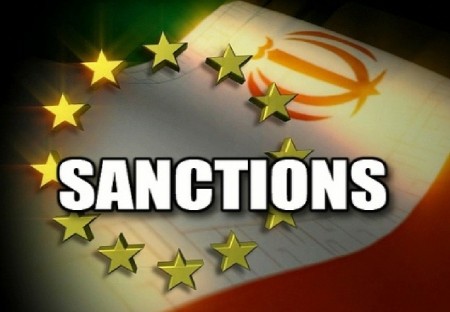On Tuesday, we reported on the message from the US Treasury’s David Cohen, who oversees sanctions on Iran, to Turkish companies in Ankara:
Iran is not open for business.
Businesses interested in engaging in Iran really should hold off. The day may come when Iran is open for business, but the day is not today.
See Iran: US Tells Turkey, “Tehran is Not Open for Business”
Now we learn that Cohen’s mission is only part of a global effort by American officials to block the resumption of trade and investment with Iran after November’s interim nuclear deal, whose implementation began on January 20.
Treasury Secretary Jacob Lew told The Wall Street Journal on Friday that he has personally led the effort in meetings with hundreds of American and international business executives in recent weeks, including sessions at the World Economic Forum in Davos, Switzerland.
“It’s really important that businesses understand that we are continuing to monitor transactions and enforce sanctions,” Mr. Lew said. “It’s really been our focus that we don’t have any misunderstandings.”
Iranian officials are pursuing their own campaign, inviting foreign investors to resume business with Tehran. Oil Minister Bijan Namdar Zanganeh has met executives of oil and gas companies, trying to revive Iranian production and exports badly hit by sanctions and the withdrawal of investment in the last four years.
President Rouhani headlined the effort in his speech at Davos on January 23: “The Islamic Republic of Iran is prepared to engage in constructive cooperation for promoting global energy security, drawing on its vast oil and gas resources.”
See Iran Video: Rouhani Speech at World Economic Forum in Davos
At a meeting at the US Embassy in London last week, Peter Harrell, the State Department’s Deputy Assistant Secretary for threat finance and sanctions, met British and French executives — including representatives from Royal Dutch Shell, French oil company Total, and the aircraft-engine division of Rolls-Royce — to say any business with Iran must be limited to the six months of the interim nuclear deal.
“The message we got is that you can’t sign any long-term commitment,” said one executive who was in the London meeting.
A group of French executives were invited to the US. Embassy in Paris on Friday, ahead of the arrival of dozens of French executives in Tehran on Monday.
An American official said Washington was reaching out to “the private sector globally to ensure that companies around the world understand the narrow scope of sanctions relief”.
Meanwhile, David Cohen has moved from Turkey to Dubai, a key hub for trade in and out of Iran. He told the Journal, “There has been some sense that this interim deal resulted in substantial relaxation of sanctions and that is just not the case. I’m trying to make sure there is no misunderstanding.”

